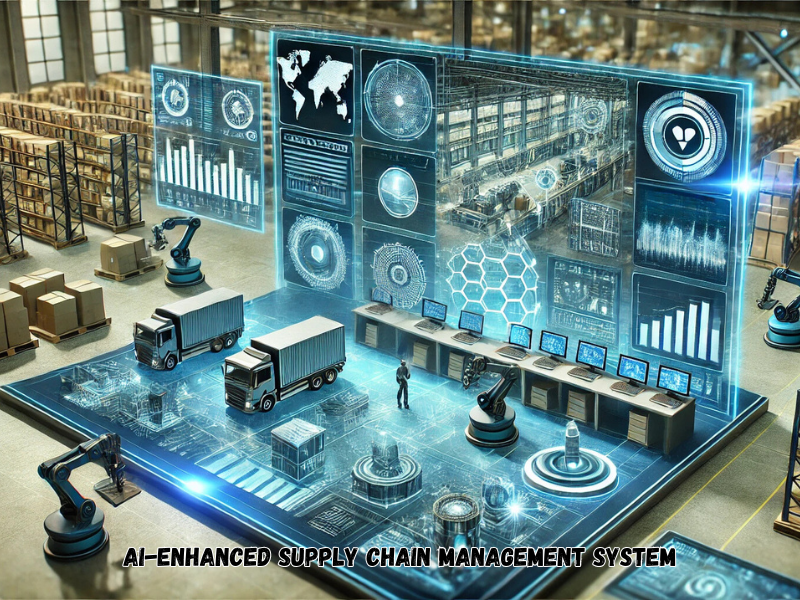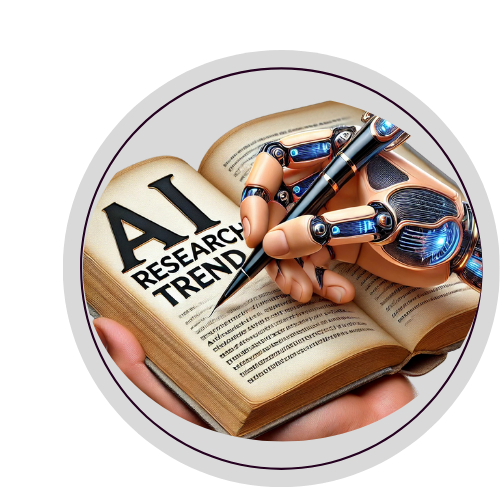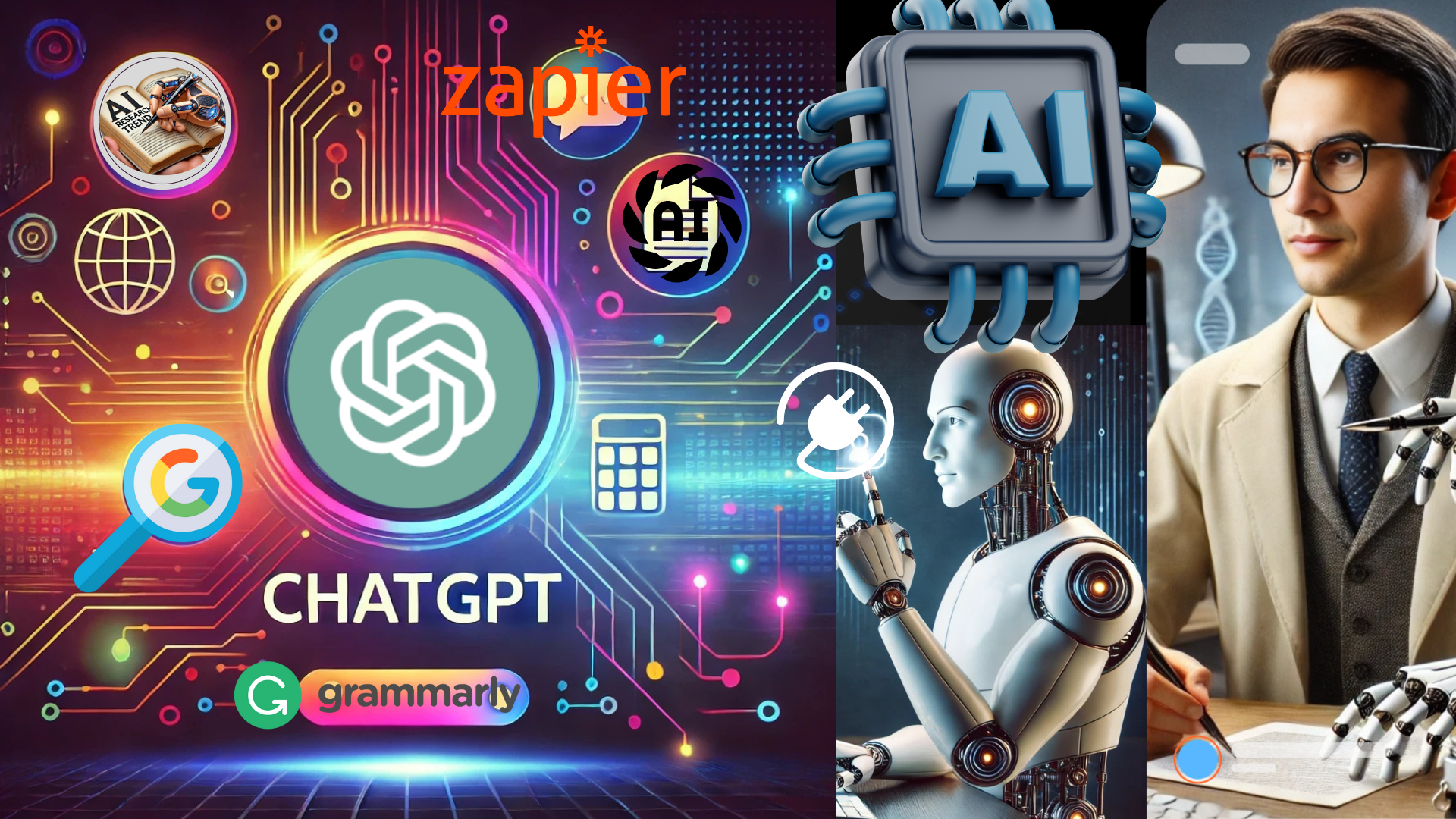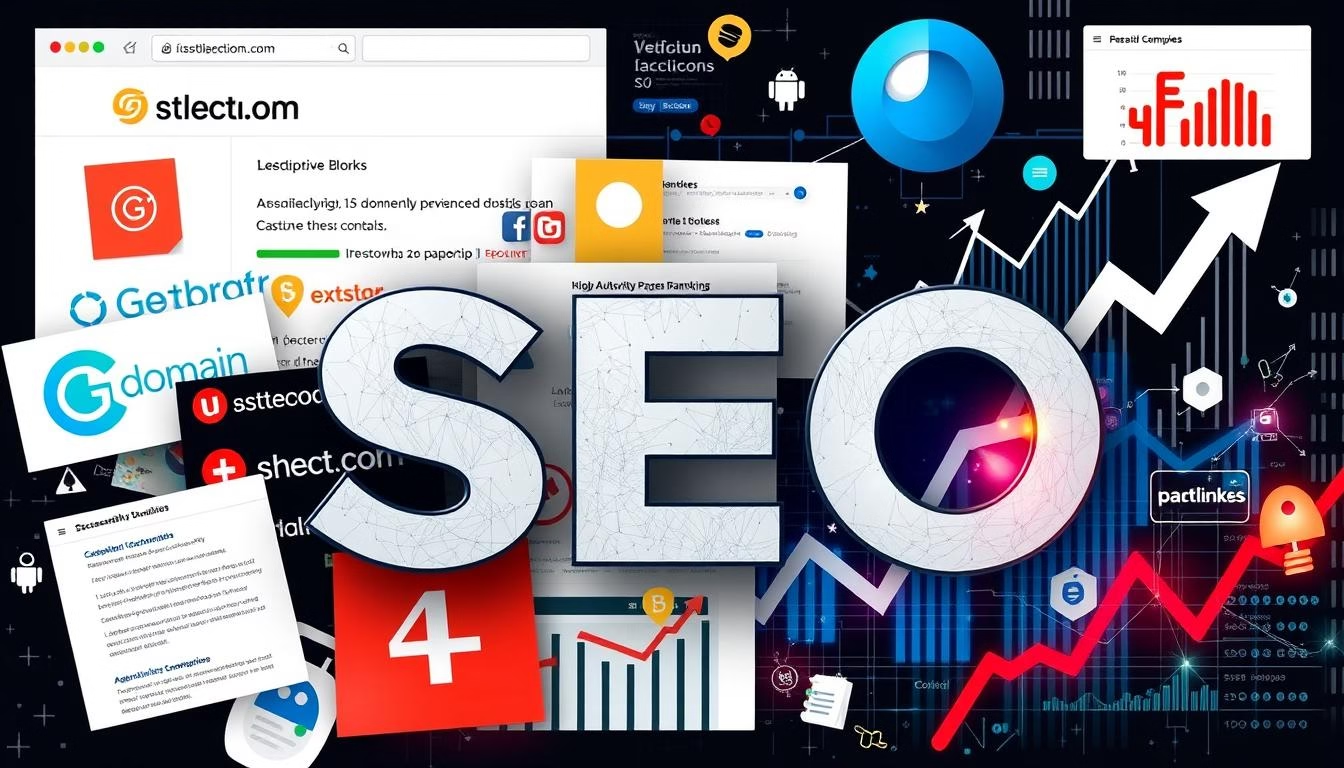Artificial Intelligence (AI) has become a crucial driver of business transformation, revolutionizing how organizations operate across industries. AI optimizes processes, improves decision-making, and drives innovation in business models. It plays a key role in finance, marketing, supply chain management, customer service, and human resources. This guide dives deeper into AI’s impact on these domains, along with real-world applications, challenges, and future trends. Discover how AI-driven innovations are revolutionizing businesses and help you to transform your business. Learn about cutting-edge technologies and strategies to boost growth and efficiency in your company.
Table of Contents
for Exceptional Growth Discover how to transform your business with these 5 proven AI strategies for exceptional growth. By leveraging AI across departments like finance, marketing, and customer service, companies can gain a competitive advantage in today’s fast-paced market landscape. Boost operational efficiency and enhance customer satisfaction with AI advancements tailored to your organization’s needs. However, responsible AI adoption requires ethical frameworks and transparency to address concerns such as data privacy and algorithmic bias. Additionally, upskilling and reskilling your workforce for AI-enabled roles will ensure a smooth transition and minimize potential workforce displacement. Revolutionize your business and thrive in the digital economy with these powerful AI strategies.
AI Business Transformation
The digital revolution has brought a new era to business, fundamentally designed to transform your business. At the heart of this change is AI business transformation, AI-driven business models, and AI business strategies. Companies from all industries are using artificial intelligence (AI) to change how they work, improve customer service, and grow sustainably, all aimed at effectively transforming your business.
AI business transformation is changing how companies operate. AI is being used to streamline business processes, helping with everything from managing supply chains to enhancing marketing efforts. This not only makes businesses more efficient but also quick to adapt, ensuring a seamless way to transform your business operations.
Moreover, AI-driven business models encourage companies to think differently. By leveraging AI, they can better understand customers, meet their needs, and create innovative products and services. This approach allows companies to offer more personalized solutions, significantly helping to transform your business.
Finally, AI business strategies are crucial for staying ahead in today’s competitive landscape. Companies that invest in AI, make data-driven decisions, and foster a culture of innovation will thrive in the digital world, leading to substantial growth and effective transformation of your business.
“The future of business lies in the seamless integration of artificial intelligence into every aspect of the organization. Those who embrace this transformation will be the leaders of tomorrow.”
As AI changes the business world, companies that adapt and use AI business transformation, AI-driven business models, and AI business strategies will be ready for the future. They will face challenges but also find many opportunities.
AI-Driven Business Models
Companies are now using artificial intelligence (AI) to change how they do business. AI is helping them grow and find new ways to succeed. It’s changing how they work, innovate, and grow.
Disruptive Innovations
AI is bringing new products and services to the market. It’s making customer experiences better and changing industries. Businesses that use AI can stay ahead and find new chances to grow.
Scalability and Growth
AI makes businesses grow by managing big data and making smart decisions. It automates tasks and makes operations more efficient. This helps companies expand and grow in a changing market.
| AI-Driven Business Models | Traditional Business Models |
|---|---|
| Highly scalable and adaptable to market changes | Often rigid and slower to adapt |
| Rely on data-driven insights for decision-making | Primarily based on human expertise and intuition |
| Personalized and automated customer experiences | Standardized and labor-intensive customer interactions |
| Continuous innovation and disruption of industries | Incremental changes and gradual evolution |
By using ai-driven business models, companies can grow and stay ahead. They can use ai for business growth and get a competitive edge. ai business strategies help them innovate, grow, and succeed in the digital world.

AI Business Strategies
Businesses today need to transform their business by using AI to stay ahead. They must align AI with their goals, solve problems, and harness AI’s power. This is key to success.
Starting with an AI strategy means knowing your business well. Look at what’s not working and where AI can help. This way, AI fits right into your plans, making it worth the investment.
However, using AI also brings up big questions. Companies must think about ethics and risks. They need to keep data safe, avoid bias, and be transparent. This builds trust and strengthens the business for the future.
I. AI-Driven Innovations in Finance
AI technologies are reshaping financial services through automation, predictive analytics, and fraud detection. Financial institutions leverage AI to increase operational efficiency while minimizing risks and providing personalized customer services.
1. Credit Scoring and Fraud Detection
AI enhances credit assessments by using alternative data sources, such as social media activity and utility bill payments, to evaluate creditworthiness. This approach speeds up loan approvals and supports financial inclusion, helping underserved populations gain credit access. AI models also improve fraud detection by spotting unusual patterns in real-time, like sudden transaction spikes or activity from unfamiliar locations. Financial giants like JPMorgan Chase use AI tools to identify inconsistencies in financial documents. Similarly, Mastercard applies machine learning to analyze transactions and flag potential fraud before it occurs.

AI models further enable dynamic risk modeling, which continuously updates based on new information, adapting to market conditions in real time. These models improve compliance efforts by automating regulatory reporting and ensuring transparency, which is vital for maintaining trust with stakeholders.
II. AI in Marketing: Personalization at Scale
AI-powered tools allow businesses to tailor marketing campaigns through data-driven insights. Predictive analytics enable companies to anticipate consumer preferences, enhancing customer engagement. Recommendation engines, such as those used by Amazon, offer personalized product suggestions, while chatbots handle customer interactions efficiently through natural language processing (NLP).
1. Predictive Marketing Campaigns and NLP
AI-driven tools are reshaping marketing and helping businesses transform their business through advanced predictive analytics and NLP (Natural Language Processing) capabilities. By leveraging predictive analytics, companies can forecast consumer behavior patterns and optimize campaigns in real time, leading to significantly higher conversion rates. This technology allows marketers to understand what products customers are likely to purchase and when, enabling targeted, data-driven marketing strategies that resonate deeply with their audience.
NLP, another crucial AI application, helps businesses interpret and respond to customer feedback from reviews and social media. By analyzing language nuances, NLP offers brands a way to measure sentiment, detect emerging trends, and promptly address potential issues, thus enhancing customer satisfaction. This technique is invaluable for customer service and proactive issue resolution; more information is available in IBM’s guide to NLP and its role in marketing.
Hyper-personalization, powered by machine learning, ensures that each customer receives content and offers that are highly relevant to their individual needs, strengthening relationships and increasing loyalty. This approach drives impressive ROI (Return on Investment), as hyper-personalized campaigns perform better than traditional methods.
To effectively transform your business with AI, consider adopting these tools to create a more personalized customer experience. By embracing these innovative strategies, your organization can significantly enhance engagement and foster long-term relationships with customers, ultimately leading to sustainable growth and success.
III. Supply Chain Management: Optimizing Operations through AI
AI-powered solutions transform your business by enhancing visibility, optimizing logistics, and enabling proactive inventory management in supply chain management. These tools help companies anticipate demand fluctuations, mitigate disruptions, and maintain seamless operations. By incorporating AI in inventory management, companies can precisely forecast product demand and improve delivery timelines, resulting in reduced waste and improved customer satisfaction. By leveraging these AI-driven strategies, businesses can significantly transform their operations, ensuring they remain competitive and agile in today’s dynamic market.
- Real-Time Inventory Management and AI Forecasting
Real-time inventory management powered by AI allows companies like Walmart to effectively transform your business by anticipating customer demand and streamlining inventory levels. This capability minimizes both shortages and overstock by accurately predicting trends in customer purchasing, ensuring that products are readily available when needed. Enhanced end-to-end visibility also enables businesses to identify bottlenecks, allowing them to make logistics adjustments that enhance operational efficiency.
Moreover, AI’s role in predictive maintenance is another game-changer for supply chain resilience, helping to transform your business. By identifying potential equipment issues before they occur, predictive maintenance minimizes downtime on production lines, keeping operations smooth and preventing costly interruptions. If you’re interested in how predictive maintenance can enhance your supply chains and further transform your business, stay tuned for more insights., explore IBM’s approach to AI-driven predictive maintenance.

AI’s ability to adapt to market demand fluctuations also strengthens supply chain agility, making it easier for companies to respond effectively to changes in the market environment. These adaptive capabilities improve supply chain efficiency and enable companies to deliver products to customers faster and more reliably.
IV. Customer Service: Chatbots and Virtual Assistants
AI-driven chatbots and virtual assistants are transforming customer service by providing seamless, round-the-clock support. These AI tools handle common queries without the need for human intervention, allowing customer service teams to focus on more complex issues. By leveraging Natural Language Processing (NLP), conversational AI enables bots to communicate with customers in a natural, intuitive manner.
- Conversational AI in Action
Businesses are increasingly relying on conversational AI to transform their business by assisting customers in real time. For instance, Sephora employs AI-powered virtual assistants to help customers discover products, book consultations, and receive personalized recommendations. These AI-driven interactions create a tailored customer experience that builds loyalty and drives engagement, ultimately working to transform your business.
AI also powers sentiment analysis tools that can detect customer emotions based on language, tone, and context. With this ability, companies can gauge customer satisfaction in real time and adjust responses to improve customer outcomes. Sentiment analysis provides companies with valuable insights into customer preferences, enabling them to refine their customer service approach effectively and further transform their business strategies.
The integration of chatbots and virtual assistants not only boosts customer satisfaction but also helps to transform your business by reducing costs through minimizing the need for extensive customer support teams. With the cost-effectiveness of AI-driven customer service solutions, companies can maintain high-quality support without large-scale human involvement, providing scalable and efficient support that ultimately transforms your business.
V. Human Resources: Revolutionizing Workforce Management
The integration of AI in human resources (HR) is revolutionizing workforce management, streamlining processes such as recruitment, employee engagement, and performance management. AI-driven systems efficiently sift through thousands of resumes, enabling recruiters to identify top candidates more quickly and accurately than ever before.
The integration of AI in human resources (HR) is revolutionizing workforce management, streamlining processes such as recruitment, employee engagement, and performance management. AI-driven systems efficiently sift through thousands of resumes, enabling recruiters to identify top candidates more quickly and accurately than ever before. AI strategies in HR bring significant advancements in talent acquisition and management, leading to improved productivity and overall business transformation. AI in HR has transformed workforce management, improving recruitment and employee engagement. With AI-driven systems, recruiters can efficiently sift through resumes to identify top candidates accurately and quickly. This integration brings advancements in talent acquisition and management, leading to improved productivity and overall business transformation.

1. AI-Driven Talent Acquisition
A leading example of AI-driven talent acquisition is Unilever, which uses AI tools to analyze candidate videos for evaluating critical attributes such as language proficiency and emotional intelligence. This approach enables HR departments to make data-driven hiring decisions and shortlist candidates that best fit the company’s needs.
In addition, AI-powered employee engagement platforms are using sentiment analysis to gauge workforce morale, allowing HR teams to detect and address any dissatisfaction before it impacts overall productivity. Furthermore, AI tools can design highly personalized career development paths, which play a pivotal role in employee satisfaction, motivation, and retention. This customization fosters a positive, future-oriented workplace culture where employees feel valued and supported.
VI. AI in Business Intelligence: Enhanced Decision-Making
Integrating AI within business intelligence (BI) platforms is revolutionizing how raw data is transformed into actionable insights, empowering businesses to make data-driven decisions with greater accuracy and speed. AI-enhanced BI systems offer advanced features like data visualization, real-time KPI monitoring, and predictive analytics, enabling organizations to remain agile and competitive in dynamic markets.
1. Real-Time Analytics and Advanced Visualization
A notable feature of AI-powered BI systems is the ability to provide real-time analytics via interactive dashboards. These dashboards present complex data through clear, dynamic visualizations, allowing decision-makers to interpret trends at a glance and adapt strategies based on current insights. Real-time KPI monitoring is especially valuable, helping businesses quickly identify areas of improvement and ensure they stay on track to reach their goals.
A notable feature of AI-powered BI systems is the ability to provide real-time analytics via interactive dashboards. These dashboards present complex data through clear, dynamic visualizations, allowing decision-makers to interpret trends at a glance and adapt strategies based on current insights. Real-time KPI monitoring is especially valuable, helping businesses quickly identify areas of improvement and ensure they stay on track to reach their goals. AI-powered BI systems offer real-time analytics through interactive dashboards that display complex data using dynamic visualizations. These visualizations allow decision-makers to quickly understand trends and adjust strategies based on current insights. Real-time KPI monitoring is a valuable feature, enabling businesses to swiftly identify areas for improvement and ensure they are on track to achieve their goals.
VII. Challenges and Ethical Considerations in AI Adoption
While AI offers significant benefits, its adoption introduces several challenges. Key concerns include data privacy, algorithmic bias, and potential workforce displacement, all of which require strategic oversight. For instance, algorithmic bias can emerge if AI models inherit historical biases from data, which can lead to unjust outcomes, particularly in sensitive areas like credit scoring. This issue underscores the need for constant monitoring and unbiased training data to mitigate fairness issues in AI decision-making.
Regulations such as the General Data Protection Regulation (GDPR) in the European Union require companies to handle customer data responsibly, enhancing user control and data privacy. Ethical AI frameworks encourage organizations to prioritize transparency in AI processes, ensuring stakeholders understand how decisions are made. Known as explainable AI, this transparency is essential to foster trust between companies and their users.
To address workforce displacement, organizations must also consider employee reskilling programs. Such programs empower employees with skills for AI-enhanced roles, enabling a smoother transition as technology evolves. Investing in continuous employee education and adopting fair, transparent AI frameworks strengthens organizational resilience and builds a culture centered on responsible AI use.
Conclusion: Harnessing AI for Sustainable Growth
Artificial Intelligence (AI) is revolutionizing how businesses operate by automating processes, enhancing decision-making, and fostering unparalleled levels of innovation. Companies that effectively leverage AI tools across departments such as finance, marketing, and customer service gain a competitive advantage, positioning themselves to excel in a fast-paced market landscape. By utilizing AI advancements, organizations can improve operational efficiency and customer satisfaction, essential drivers for sustainable growth in today’s digital economy.
However, as companies integrate AI, challenges such as data privacy, algorithmic bias, and workforce adaptation remain key concerns. Responsible AI adoption requires ethical frameworks and transparency to ensure that AI systems are fair and trustworthy. Additionally, upskilling and reskilling the workforce to adapt to AI-enabled roles will play a critical role in a smooth transition, reducing the potential for workforce displacement.
Learn More:
Explore related topics and discover additional articles by Dr. Aiden Innovus for a comprehensive view.











2 thoughts on “5 Proven AI Strategies for Exceptional Growth”